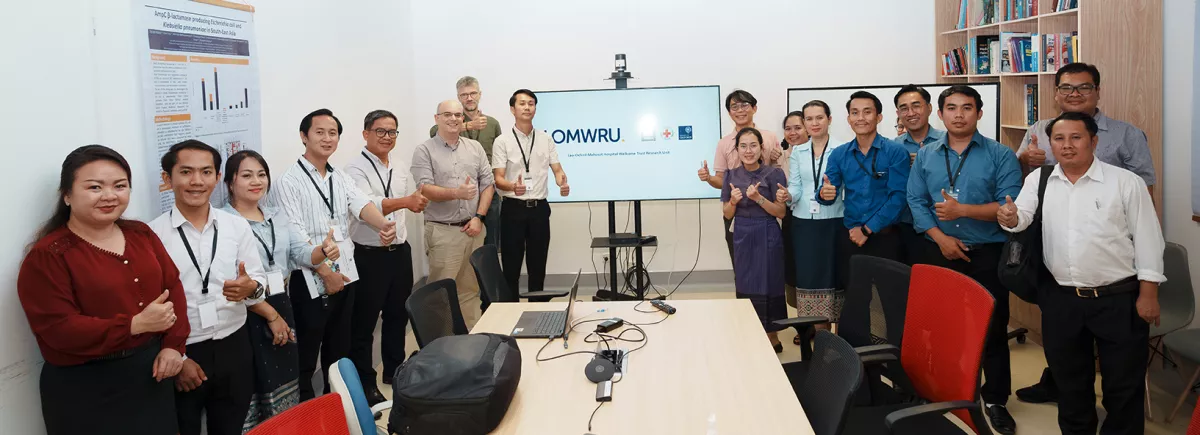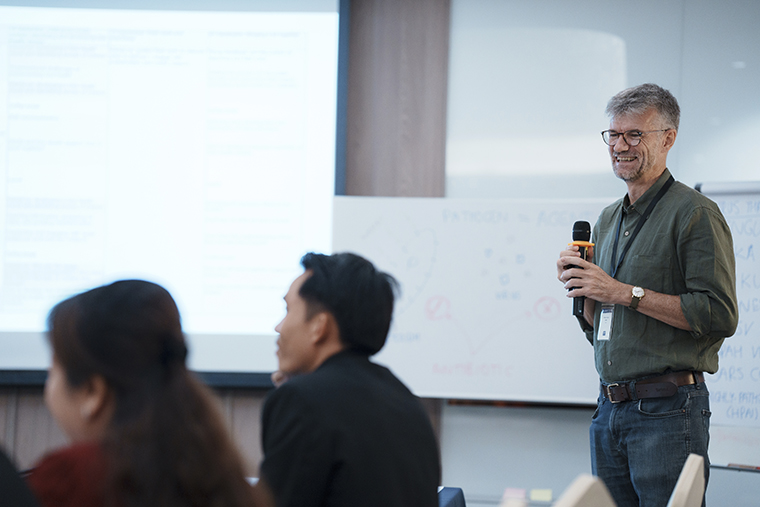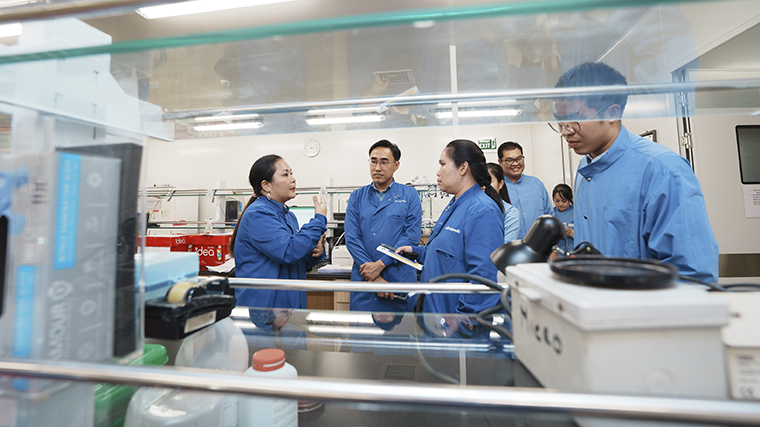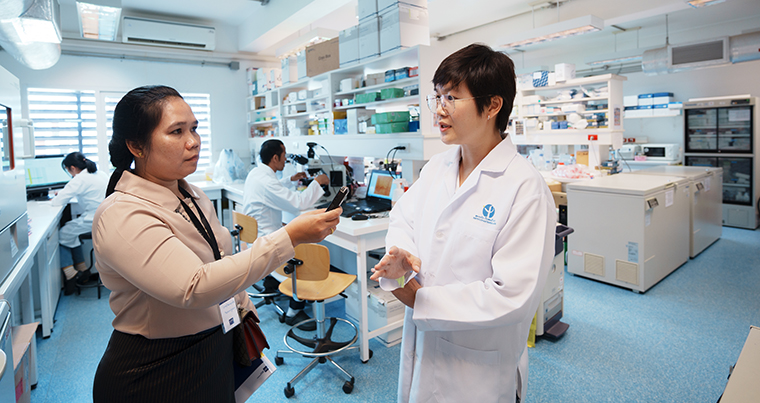
Twelve Journalists and Laotian Ministry of Information Representatives Trained in the "One Health" Approach
Related project
Media for One healthTwelve journalists and representatives from the Laotian Ministry of Information have explored the scientific "One Health" approach to gain a deeper understanding of environmental and medical issues.
From September 16 to 20, CFI conducted a training session for twelve journalists and representatives from the Laotian Ministry of Information on the "One Health" scientific approach as part of the Media for One Health project. This innovative method aims to investigate the interconnectedness of three essential elements: human health, animal health, and the environment, to better address issues such as emerging diseases, antibiotic resistance, the impact of pesticides, and the threats posed by deforestation.

Laos is experiencing several of these challenges but struggles with a lack of understanding among the public and journalists, even those trained by CFI who already have expertise in health and environmental matters. Collaborating with experts from CIRAD, Dr. Dethaloun Meunsene, a microbiologist at the National University of Laos, and media trainers from Events for Good, this training has enabled journalists to enhance their grasp of this approach and its significance in tackling complex issues.
Interactivity was a key element of this training, designed as a genuine exchange between media professionals and scientists. External speakers contributed by sharing their insights and experiences related to the "One Health" approach, including a presentation by Professor Mayfong Mayxay, Head of Research at the Lao-Oxford-Mahosot Hospital-Wellcome Trust Research Unit (LOMWRU) and Vice-President of the Lao University of Health Sciences, affiliated with the Ministry of Health.

The aim was to provide journalists with a comprehensive overview of how this approach is implemented in Laos, involving both authorities and NGOs, as well as research centres. This understanding is intended to support studies, inform public policy planning, and develop prevention and awareness initiatives. Two field visits to the Pasteur Institute of Laos and LOMWRU further enriched this perspective.
Special attention was given to how journalists can make these issues more accessible to the public. This effort will continue with training sessions on interview techniques and mobile journalism scheduled for fall 2024. The goal of these sessions is to equip journalists with the skills to transform complex scientific information into engaging and understandable content, thereby enhancing its reach to a broader audience.



